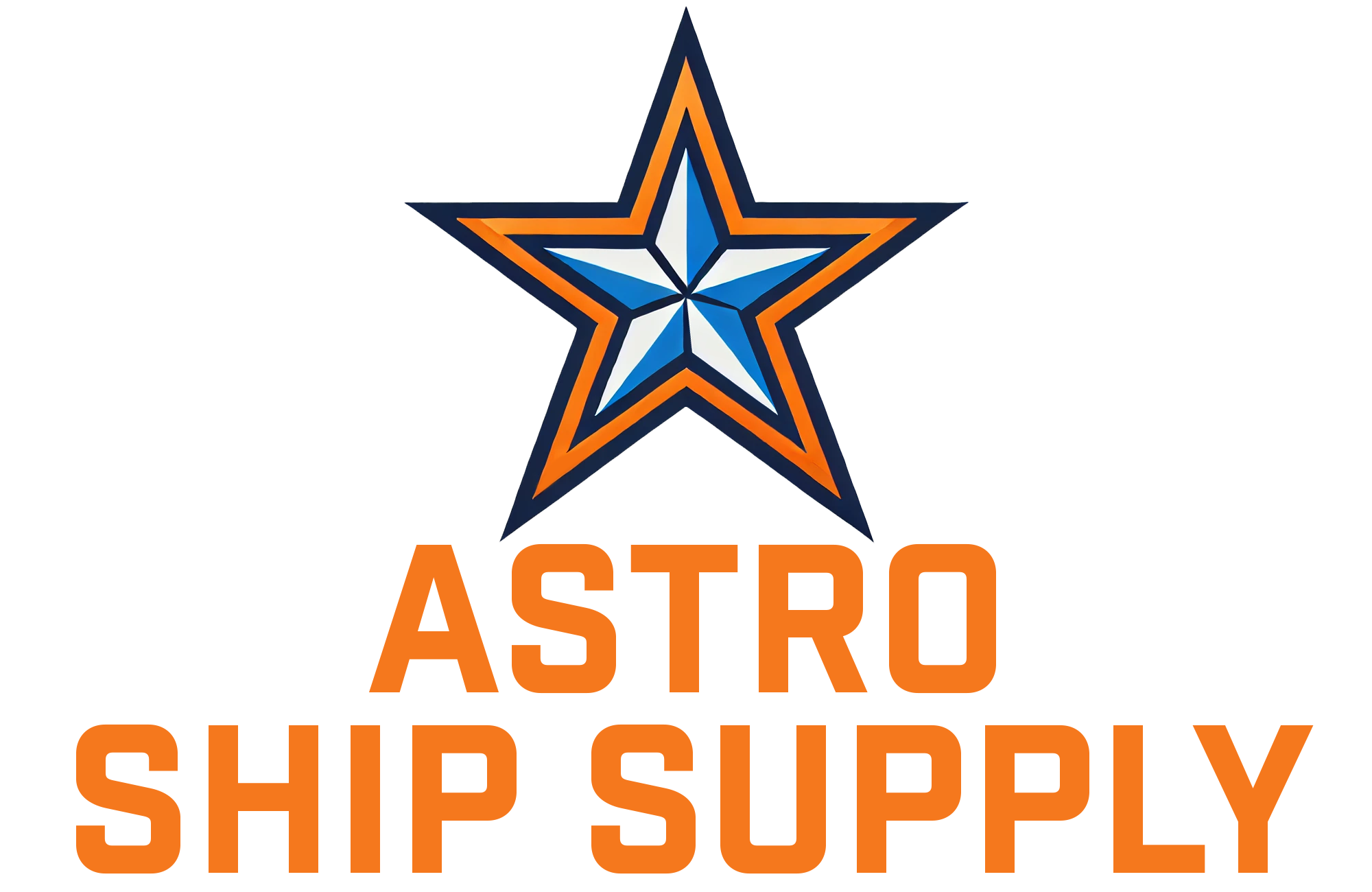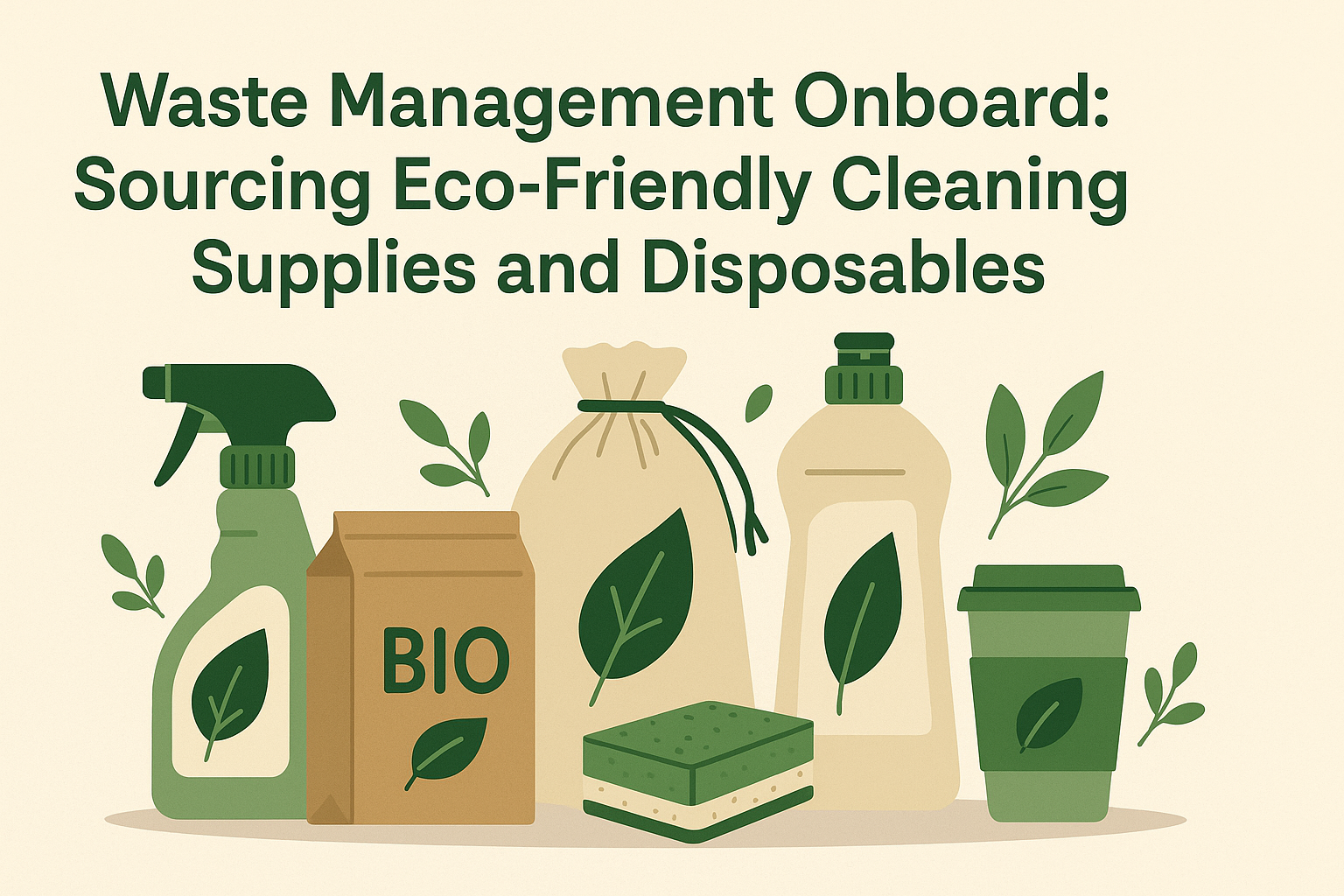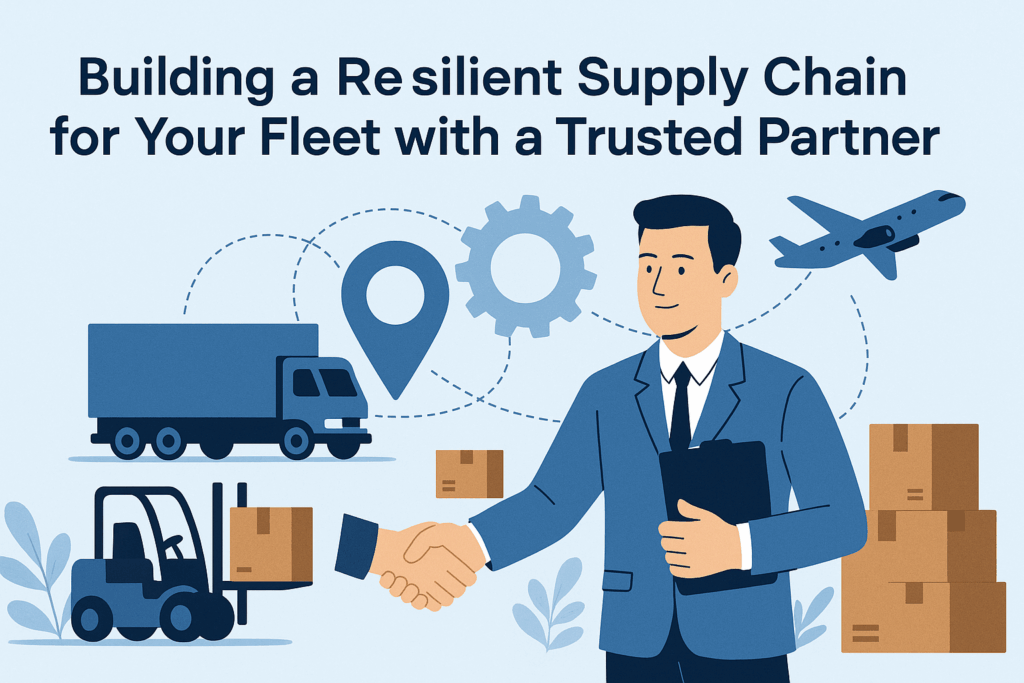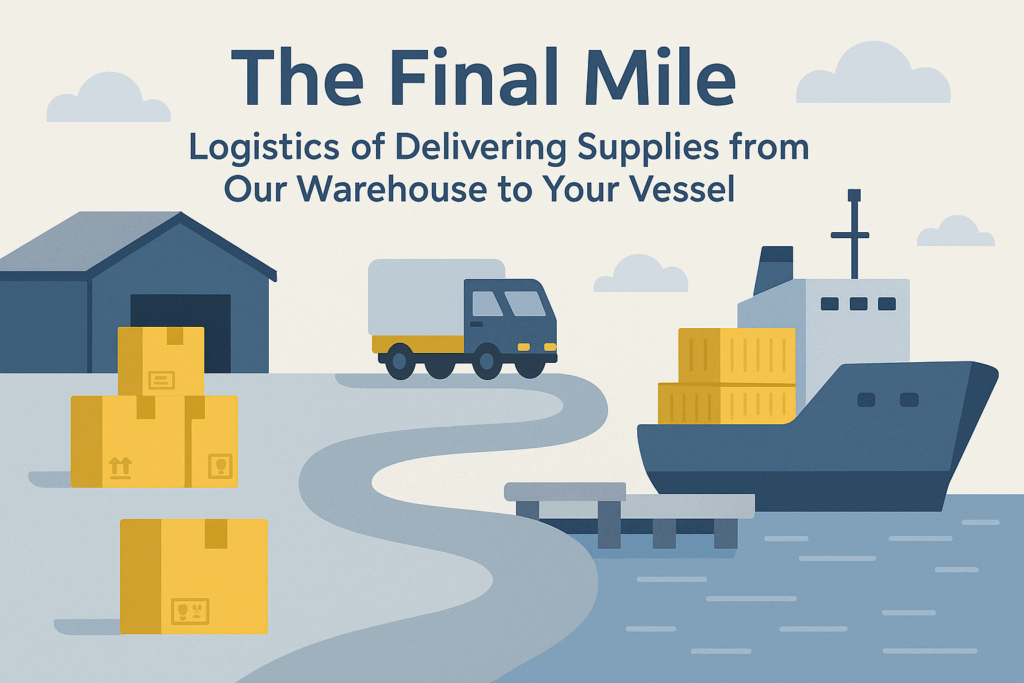The challenges of waste management at sea are unique. Vessels operate in isolated environments, far from land-based waste disposal infrastructure. Every item brought onboard, from the smallest cleaning wipe to large-scale provisions, eventually becomes part of the waste stream. This makes the initial selection of supplies crucial. By prioritizing **environmentally friendly alternatives**, you can significantly reduce your vessel’s ecological footprint, minimize hazardous waste generation, and even streamline disposal processes.
This comprehensive guide will delve into the nuances of selecting and implementing sustainable cleaning practices onboard. We’ll explore the benefits, common misconceptions, and practical strategies to help you navigate the ever-evolving landscape of eco-friendly maritime supplies. Whether you’re a seasoned procurement manager or a new crew member, understanding these principles is vital for modern, responsible shipping.
The Imperative of Eco-Friendly Sourcing: Beyond Compliance
While international regulations such as MARPOL Annex V have laid the groundwork for marine pollution prevention, adopting eco-friendly cleaning supplies goes beyond simply meeting minimum requirements. It reflects a proactive commitment to environmental responsibility, offering a multitude of tangible benefits for your vessel and your business.
Environmental Benefits: Protecting Our Oceans
- Reduced Ocean Pollution: Traditional cleaning agents often contain phosphates, nitrates, and other harmful chemicals that, when discharged, contribute to eutrophication, algal blooms, and oxygen depletion in marine ecosystems. Eco-friendly alternatives are formulated to biodegrade quickly and safely, minimizing their impact on aquatic life.
- Lower Carbon Footprint: Many conventional cleaning products involve energy-intensive manufacturing processes and transportation. Sustainable options often use renewable ingredients, have lighter packaging, and are produced with reduced energy consumption, contributing to a lower overall carbon footprint.
- Conservation of Resources: By opting for concentrated formulas, refillable systems, and products made from recycled materials, vessels can reduce their consumption of virgin resources and minimize packaging waste.
- Mitigation of Microplastic Pollution: Certain cleaning cloths and personal care disposables can shed microplastics. Choosing natural fiber alternatives and biodegradable disposables helps combat this pervasive environmental issue.
Operational and Economic Advantages: A Win-Win for Your Vessel
- Enhanced Crew Health and Safety: Conventional cleaning products can emit volatile organic compounds (VOCs) and irritants that pose health risks to crew members, particularly in enclosed spaces. Eco-friendly products typically have fewer harsh chemicals, leading to improved indoor air quality and reduced exposure to harmful substances. This contributes to better crew morale and potentially fewer health-related incidents.
- Improved Equipment Longevity: Harsh chemicals can corrode surfaces, damage equipment, and degrade materials over time. Gentler, eco-friendly formulations can extend the lifespan of your vessel’s fixtures, fittings, and equipment, reducing maintenance costs and replacement frequency.
- Simplified Waste Management: Biodegradable and less hazardous cleaning waste can be easier and less costly to manage onboard, potentially reducing the need for specialized disposal methods at port. This can lead to efficiencies in waste segregation and storage.
- Positive Brand Image and Reputation: In an increasingly environmentally conscious world, demonstrating a commitment to sustainability enhances your company’s reputation. This can attract environmentally conscious clients, improve stakeholder relations, and even offer a competitive advantage in the market.
Deconstructing Eco-Friendly: What to Look For
The term “eco-friendly” can sometimes be used loosely. To make truly informed decisions, it’s essential to understand the key characteristics and certifications that define genuinely sustainable cleaning supplies and disposables.
Key Attributes of Sustainable Cleaning Products
- Biodegradability: The product should break down naturally and quickly in the environment without leaving harmful residues. Look for products that specify “readily biodegradable.”
- Non-Toxic/Low Toxicity: Avoid products containing phosphates, chlorine bleach, ammonia, phthalates, parabens, and synthetic fragrances. Opt for plant-based ingredients or mineral-derived alternatives.
- Concentrated Formulas: Concentrates reduce packaging, transportation costs, and carbon emissions. They also allow for flexible dilution based on cleaning needs, reducing overall product consumption.
- Recycled/Recyclable Packaging: Prioritize products packaged in post-consumer recycled (PCR) materials and ensure the packaging itself is easily recyclable onboard or at port facilities.
- Low Volatile Organic Compounds (VOCs): VOCs contribute to air pollution and can cause respiratory issues. Choose low-VOC or VOC-free products.
- Cruelty-Free/Vegan: While not directly related to environmental impact, many eco-conscious brands also adhere to ethical practices regarding animal testing and ingredients.
Understanding Certifications and Labels
Navigating the myriad of eco-labels can be daunting. Here are some reputable certifications to look out for:
- Ecolabel (EU Flower): A comprehensive European Union certification for products with reduced environmental impact throughout their life cycle.
- Green Seal: A US-based certification indicating a product meets rigorous standards for environmental performance, health, and usability.
- Safer Choice (EPA): The U.S. Environmental Protection Agency’s label for products made with ingredients that are safer for human health and the environment.
- Cradle to Cradle Certified™: Assesses products across five quality categories: material health, material reutilization, renewable energy and carbon management, water stewardship, and social fairness.
- Nordic Swan Ecolabel: A robust Scandinavian ecolabel with strict environmental and climate criteria.
Comparative Analysis: Traditional vs. Eco-Friendly Cleaning
To truly appreciate the value of eco-friendly alternatives, let’s compare them directly with their traditional counterparts across several key categories relevant to onboard operations.
Case Study: Deck Cleaning
| Feature | Traditional Deck Cleaner (e.g., strong degreaser) | Eco-Friendly Deck Cleaner (e.g., enzyme-based, pH-neutral) |
|---|---|---|
| Chemical Composition | High pH, strong acids/alkalines, phosphates, VOCs. | Plant-derived enzymes, biodegradable surfactants, neutral pH. |
| Environmental Impact | Harmful to marine life upon discharge, contributes to eutrophication, potential air pollution. | Breaks down safely, minimal impact on marine ecosystems, low VOCs. |
| Crew Safety | Requires extensive PPE (gloves, masks), risk of skin/respiratory irritation, fumes. | Reduced need for heavy PPE, non-irritating, safer for prolonged exposure. |
| Surface Compatibility | Can strip protective coatings, corrode metals, damage paint. | Gentler on surfaces, extends lifespan of decking materials and coatings. |
| Efficacy | Often requires strong scrubbing; can leave residue. | Effective through enzymatic action (breaks down organic matter); may require short dwell time; rinses cleanly. |
| Disposal | Hazardous waste classification, specific port disposal requirements, higher costs. | Less hazardous, potentially can be discharged under certain conditions (check local regs), easier waste management. |
As illustrated, the long-term benefits of eco-friendly options far outweigh any initial perceived differences. While a traditional degreaser might offer immediate “power,” the cumulative damage to the environment, crew health, and vessel infrastructure makes it a less sustainable choice.
Disposables: Wipes, Liners, and More
Beyond cleaning solutions, the disposables used onboard also contribute significantly to the waste stream. Consider the shift from conventional to eco-friendly options:
- Cleaning Wipes:
- Traditional: Often synthetic fibers (polyester, polypropylene) that shed microplastics and are not biodegradable.
- Eco-Friendly: Made from natural, biodegradable materials like bamboo, cellulose, or recycled cotton. Look for compostable certifications.
- Waste Bags:
- Traditional: Standard plastic bags made from virgin petroleum, slow to degrade, contribute to plastic pollution.
- Eco-Friendly: Biodegradable or compostable bags made from plant-based polymers (e.g., corn starch) or recycled plastics. Ensure they meet relevant composting standards.
- Galley Disposables (if used):
- Traditional: Styrofoam or virgin plastic plates/cutlery.
- Eco-Friendly: Biodegradable plates made from bagasse (sugarcane fiber), bamboo, or compostable bioplastics. Reusable options are always preferable where practical.
Implementing a Sustainable Onboard Cleaning Program: Practical Steps
Transitioning to an eco-friendly cleaning regimen requires a strategic approach. Here’s how to implement a successful program onboard:
1. Conduct a Waste Audit and Needs Assessment
Before making any changes, understand your current consumption patterns. What types of cleaning products are you using? How much waste is generated? Where are the biggest opportunities for improvement? This helps tailor your procurement strategy.
2. Educate and Train Your Crew
Crew buy-in is paramount. Provide comprehensive training on the benefits of eco-friendly products, proper usage (especially for concentrates), and correct waste segregation. Highlight the personal health benefits to encourage adoption.
3. Partner with a Reputable Ship Chandler
Working with a supplier like Astro Ship Supply is crucial. We specialize in sourcing and delivering certified eco-friendly cleaning supplies and disposables, ensuring compliance and quality. Our expertise in the Houston and Gulf Coast region means timely and efficient delivery right to your vessel. Check out our Cabin & Accommodation services for a full range of sustainable options.
4. Start Small and Scale Up
Don’t try to overhaul everything at once. Begin with high-impact areas, such as galley cleaning or cabin maintenance, and gradually expand the program to other parts of the vessel.
5. Optimize Storage and Dilution
Concentrated products require careful dilution. Ensure crew members have access to clear instructions and proper measuring tools to avoid waste and maximize efficacy. Optimize storage to prevent spoilage and leaks.
6. Monitor and Evaluate Progress
Regularly review your waste generation data and cleaning product consumption. Solicit feedback from the crew. Are the new products performing as expected? Are there areas for further optimization? This continuous improvement cycle is key to long-term success.
Future Trends in Sustainable Maritime Cleaning
The maritime industry is constantly evolving, and so too are the innovations in eco-friendly cleaning. Expect to see:
- Advanced Biotechnologies: Further development of enzyme- and microbial-based cleaners that offer superior performance with minimal environmental impact.
- Smart Dispensing Systems: Automated and IoT-enabled dispensing systems for concentrates that ensure precise dilution and reduce human error.
- Closed-Loop Systems: Increased focus on product take-back programs for reusable containers and even waste-to-product solutions.
- Certification Harmonization: A push for more standardized global certifications for eco-friendly maritime products.
Conclusion: Charting a Course for a Greener Future
The journey towards a truly sustainable maritime industry is ongoing, and the careful sourcing of eco-friendly cleaning supplies and disposables is a critical step on this path. By embracing these practices, vessels can significantly reduce their environmental footprint, enhance crew well-being, and gain a competitive edge. It’s a testament to responsible operations and a commitment to protecting the precious marine environment that sustains us all.
At Astro Ship Supply, we are your trusted partner in this endeavor. With our comprehensive range of high-quality, certified eco-friendly products and our unwavering commitment to timely, efficient service, we empower you to navigate the complexities of onboard waste management with confidence. Let’s work together to make every voyage a greener one.
Ready to upgrade your vessel’s cleaning supplies? Request a quote today and discover the Astro Ship Supply difference.
Frequently Asked Questions (FAQ)
Q: Why are eco-friendly cleaning supplies important for vessels?
A: Eco-friendly cleaning supplies are crucial for vessels as they significantly reduce the discharge of harmful chemicals into marine environments, minimize pollution, and protect ocean ecosystems. They also improve crew health by reducing exposure to harsh chemicals and contribute to a positive brand image for your shipping operations.
Q: What should I look for when sourcing eco-friendly cleaning products?
A: When sourcing eco-friendly cleaning products, look for attributes like biodegradability (especially “readily biodegradable”), non-toxic ingredients (avoiding phosphates, chlorine, ammonia), concentrated formulas, recycled or recyclable packaging, and low VOC content. Reputable certifications such as Green Seal, Ecolabel, or Safer Choice also indicate genuine environmental commitment.
Q: Can eco-friendly cleaning supplies be as effective as traditional ones?
A: Absolutely. Modern eco-friendly cleaning supplies, particularly those utilizing advanced enzyme-based formulas or plant-derived ingredients, are highly effective in breaking down dirt, grease, and grime. While some may require a slightly different application method or dwell time, their cleaning power is comparable, often with added benefits like being gentler on surfaces and safer for crew.
Q: How does Astro Ship Supply help with sourcing eco-friendly products?
A: Astro Ship Supply is your expert partner for sourcing eco-friendly cleaning supplies and disposables in the Port of Houston and Gulf Coast. We offer a curated selection of certified sustainable products, ensuring quality and compliance. We provide timely delivery, expert advice, and a deep understanding of maritime needs, helping you implement greener practices seamlessly.
Q: What are the main challenges in managing waste onboard vessels?
A: Key challenges in onboard waste management include limited storage space, the need for proper waste segregation (hazardous vs. non-hazardous, different materials), compliance with international and local discharge regulations (MARPOL Annex V), and the logistical complexities of offloading waste at various ports. Sourcing eco-friendly supplies helps mitigate these challenges by reducing the volume and hazardous nature of waste generated.






